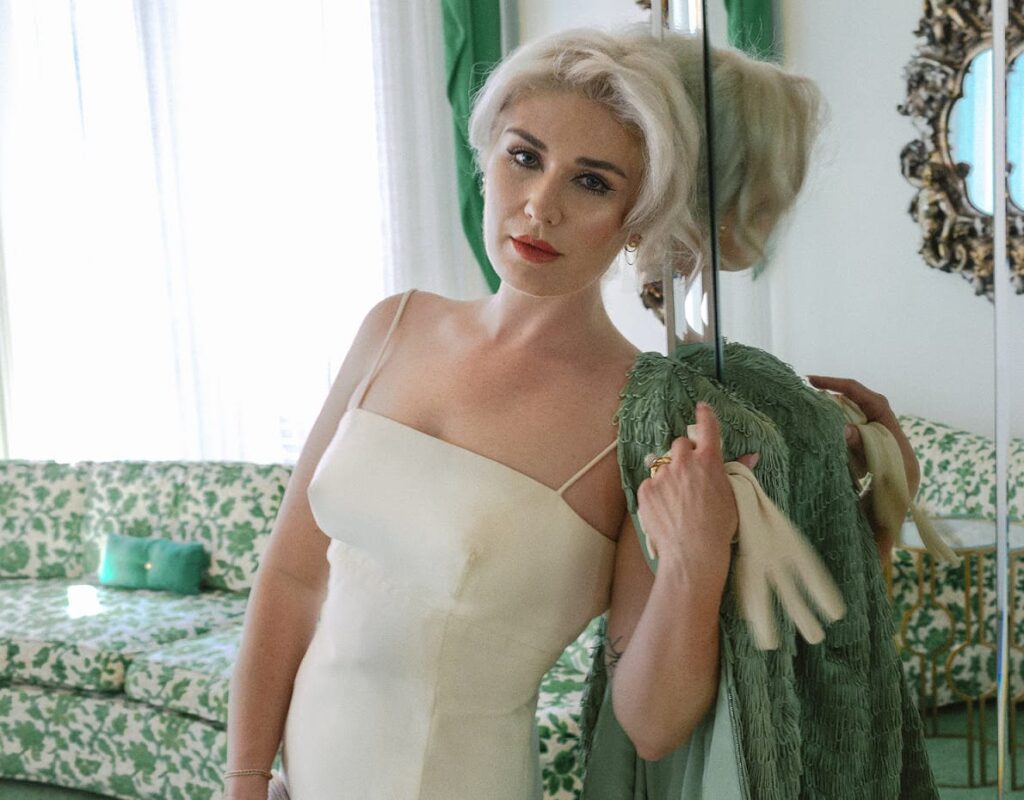
photo: Samantha West
***
Morgan Kirby is calling from her Silver Lake, Calif., studio, fresh off the release of Rookie, a 10-track album issued under the alias Sue Clayton. The moniker is a pragmatic assemblage of her mother and father’s middle names and, while the new LP’s title might allude to a specific message steeped in a newcomer’s experience, Kibby’s bonafides speak for themselves. She spent years singing with French electronic favorites M83, authored some of that outfit’s most enduring tunes, and has worked with Harry Styles, Lady Gaga, The Weeknd and other Top 40 frequenters.
But, unlike the aforementioned stars, Kibby’s solo music strays away from both the bubblegum appeal of mass-consumed iHeart Radio standards and her former group’s synth-pop dreamscapes. “I wrote this record for women over 35,” Kibby says. “It’s for women of a certain age who are not spoken to and who don’t get written for.
“I’ve noticed that women in their mid-30s to late-40s/ early 50s are lost in the shuffle,” she adds. “And we have these incredibly powerful experiences when we get to that age. You start to know who you are [as you age], and it’s a glorious experience. But, we’re not the ingénues anymore. We’re not revered; Western culture is a youth-fetishizing piece of shit. So, in hindsight, I did write this to share those intimate moments that happened in my life—my transformation, things that didn’t work out, things that did, the flailing abandon of surrendering to what’s to come instead of dwelling on the past. I wanted to write songs that make you feel like you’re listening to something almost too private.”
Kibby’s crooned confessions are full of tender moments, drenched in stunning instrumentation that’s colored with fluttering riffs, whimsical keys and, at times, thunderous drums positioned to mirror the artist’s blunt emotions. That’s especially true of the set’s most pop-focused moment, “OMG.” “The ultimate goal was just to share something that moves people. That’s why I make music,” Kibby says. “I want people to feel things.”
Reflecting on key tracks “Moon Song” and “Helicopters,” she explains, “I remember sitting there alone in the pool in the middle of the night and looking up at the stars and tracing those little, silly slice[1]of-life moments that actually mean more than any of the big stuff. And so it becomes like you’re sitting with me in those moments, and we’re holding each other. I want people to feel a bit held—in the sense that life is really hard. Sometimes just having a moment of tenderness with a song is glorious.”
What some might regard as intrusive, Kibby deems tactful. “Young people bring so much to be excited about, especially now,” she says. “The late-20s are really hard, and by your 30s, you start to get a better footing. Turning 39 hit me like a knife in the stomach. But, then I was like, ‘Why?’ I feel more beautiful than I have ever felt. I take better care of myself. I have agency. I have an idea of who I am in the world. The unfortunate sexism—especially in youth culture—is that, with women, it really comes down to our desirability. It’s not about the work at all. It’s about, ‘Do people want to take us to bed?’”
